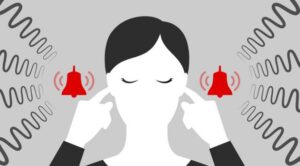Roughly 50 million Americans experience some form of tinnitus (TINN-a-tus; or ti-NIGHT-us). Of that 50 million, 20 million report their tinnitus is bothersome while 2 million describe their tinnitus as disabling or nearly disabling. Tinnitus is an invisible source of anguish that is very real and can be life-altering.
So, why are some people bothered by their tinnitus, and a large percentage of those with tinnitus are able to ignore it? It is not very helpful when your physician or friend tells you “I have tinnitus too and have had it for 20 years. You just need to ignore it like I do!” How do you swallow this when your tinnitus is interrupting your life, your sleep, your work and you would give anything to “just ignore it”? And, my, how you’ve tried!!
Any information that comes into the brain via the 5 senses is interpreted by the Emotional Brain (Limbic System). The Emotional Brain decides if the stimulus is positive, ok to ignore, or a possible threat. How the Emotional Brain categorizes your tinnitus determines how loud the perceived volume of the sound is and how intrusive the tinnitus is in your life. When viewed as a threat, the tinnitus becomes almost impossible to ignore, which can affect concentration, sleep, and mood. It may become very difficult to be in silence at all. While you are in this Fight or Flight mode, you might feel jumpy, anxious, have heightened sensitivity to sound, and feel drained and exhausted most of the time. While in this state, if any external stress is introduced (because life), the tinnitus may seem to increase in volume and disrupts your everyday life even more.

During a Tinnitus Evaluation, your Audiologist will discuss both the auditory and emotional system components to your tinnitus and how to address each element. She will discuss with you your hearing test results, your body’s stress response system and ways to address how these two systems are interacting to reinforce the tinnitus cycle. Your Audiologist will discuss enriching the sound environment, stress management, relaxation, sound therapy, hearing aids, and cognitive behavioral therapy. Some or all of these approaches may be helpful for you, depending on your particular tinnitus circumstances.
A realistic goal of tinnitus treatment is to habituate or acclimatize to the tinnitus and learn to live a normal life. To habituate means to learn to live with the tinnitus as a benign stimulus instead of the constant intrusion that it has been thus far. Though we may not be able to remove the sound of the tinnitus completely, we can move it from the forefront of your awareness to the background, where you are finally able to ignore it. Doing so can vastly improve your overall quality of life.
We are currently offering telehealth (video) visits to patients. To begin a discussion about tinnitus and tinnitus treatment, contact The Hearing Center at Dallas Ear Institute at 469-803-5552 to schedule an appointment today!



